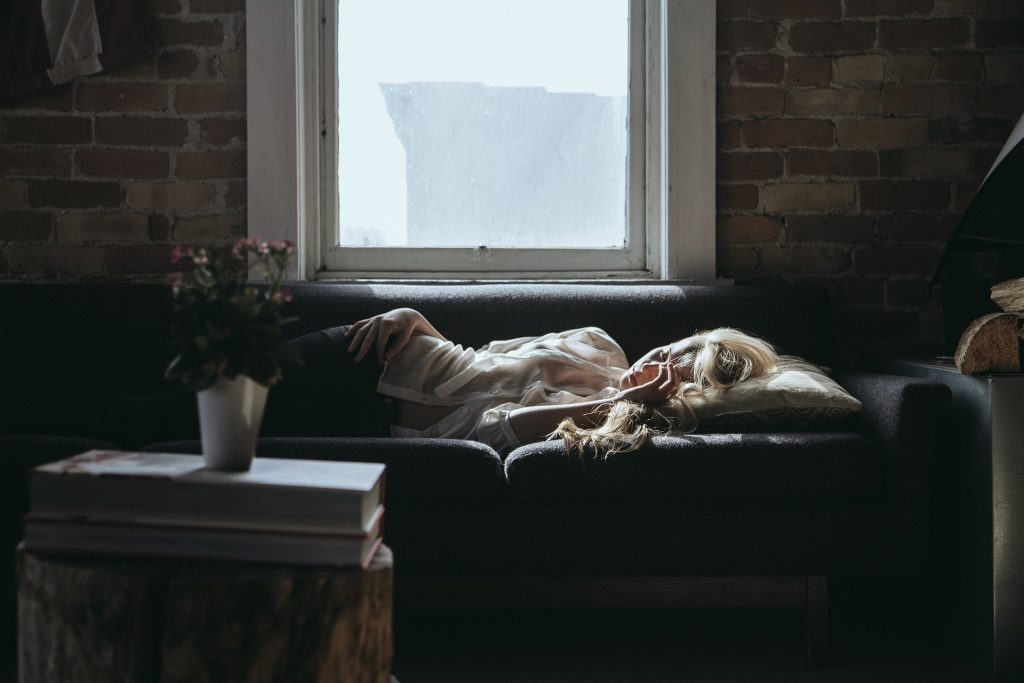How to Avoid Anxiety Around the Home in 2020

2020 has been a troubling year, with challenges outside aplenty, and at home with your own wellbeing. One of the greatest challenges is trying to avoid anxiety. In 2013, there were 8.2 million cases of anxiety disorder in the UK. Whilst about 40 million American adults (roughly 18% of the population) were diagnosed with an anxiety disorder.
But for 2020, these anxiety figures look to be far higher. The COVID-19 pandemic is responsible in large part for this. The uncertainty surrounding who will be severely affected by COVID combined with social isolation, grief from losing family and friends, and the effects of a major recession or even financial depression are taking their toll on people’s mental health. Routine and even urgent health care is often being sidelined, leaving the focus primarily on COVID-19, to the detriment of other conditions, especially mental health conditions like depression and anxiety.
Does the extra time you're spending at home make it harder to avoid anxiety?
Restrictions on movement caused by lockdowns, on which family you can see, and how you spend your leisure time have forced us to spend increasing amounts of time at home. Sometimes this is during the working day and almost always in isolation. Fear has gripped the world, thanks to something celebrity Denise Walsh has labelled ‘fearmongering’ from mainstream media.
It’s easy to retreat into a dark space at home. Minor concerns can become exaggerated. We all tend to worry about the worst-case scenario. But for those living alone, anxiety and worry are especially dangerous. Isolation can leave you with little reassurance about the world. In that situation, every occurrence or challenge you meet day-to-day can cause anxiety. As we examine in The Food Phoenix, chronic stress can leave you feeling physically, emotionally, and mentally exhausted. If that sounds like you, if fear seems to rule your life and you feel anxious at home, then we have some steps you can take to alleviate worry in the future. These are practical steps that can help add peace of mind about your home and sanctuary, as well as with the world itself.
How The Media Contributes To Symptoms Of Anxiety
Try to limit your exposure to the media, who enhance fear and concern by repetition and conjecture. The media sensationalises the news to grab your attention. This harnesses viewers, keeping you glued to your TV or device. And as a result, it’s almost impossible to avoid anxiety.
Expert opinions may also introduce bias. Opinions are only that; what someone thinks. They don’t always reflect how the world is. In 1931, mathematician Alfred Korzybski presented a paper in which he introduced his key idea –- the map is not a territory. How you see the world is not how the world is; it is how you perceive it. Social contagion describes how ideas and emotions catch on and spread like infections. So it’s easy to get caught up in hysteria –- so remember that ideas you hear from the media are only that, not an indication of how the world is. Limit your exposure to other people’s opinions, not just experts but also those on social media.
Community Support
Whether you live alone, or with a wider family group, having some community support is crucial for your mental health and wellbeing. Find someone in your support network you trust to buddy up with and check in on every couple of days. Set an intention to talk about life outside of the main news points. It’s important to have conversations that do not recycle the fear you have seen or heard on TV. Pick people who can listen and in turn, also listen to others. If you have anxiety about your home or a situation within it, share that. It might be the case your buddy has the same. Social interactions where you can share your concerns helps decrease feelings of isolation. They might also have practical advice to help you get through the next day, week or month. This can bring an accompanying sense of relief.
Insurance
This is a practical choice, but you can reduce anxiety surrounding the unknown by protecting your home where applicable. Contents insurance might not be as crucial if you are spending more time at home, but consider the services which would severely affect your quality of life if they were to break down. Home insurance can be wide-ranging, according to HomeServe, with options available for covering singular systems within your home, such as the heating, or electrics. These are elements of your home that can break down. And nobody needs more things to worry about right now. Sleep easy at night knowing if your boiler does break down, you have cover and protection in place.
Separation as a way to create boundaries to reduce stress
It might seem odd suggesting separation as a way of reducing anxiety, but this is connected to working from home more than anything. If you are at your desk working all day, ensure you can close that element of your life off at night by creating boundaries. When you work from home, there is a temptation to answer one more email or pick up the phone if it rings out of hours, but do not. That pressure of being on-hand 24 hours a day can make your life miserable. If you have an office at home, close the door. If you have a work laptop, turn it off and put it away. Work and leisure time should be clearly defined for your mental wellbeing.
For more practical advice on incorporating more self-care activities, make sure you download these addictively easy activities for self-care.


